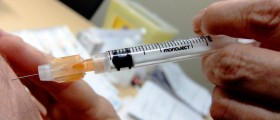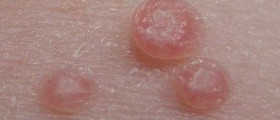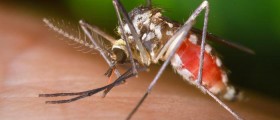About genital warts
Genital warts, also known as venereal warts, are a form of sexually transmitted disease. They are caused by HPV or human papillomavirus, one of the most common sexually transmitted viruses. These warts are in fact flesh-colored, small growths that can be located both inside and outside of the genital organs. They are often hard to detect, because they usually do not cause any discomfort and, if they are located inside the vagina, they cannot be spotted easily. In many cases, genital warts are only diagnosed after a regular check-up at the doctor’s office.
If left untreated, genital warts can grow and spread even more, for example, if they started inside the vagina, they can spread to the vulva, to the anus and even to the thighs and buttocks. Furthermore, they can easily be passed from one person to another through sexual intercourse.
Prevention of genital warts
Like any other sexually transmitted disease, the only absolutely effective way to prevent genital warts is to abstain from sexual activity of any kind. Aside from that, the most popular form of prevention are condoms, especially those made of latex. The problem with condoms, however, is that they do not provide absolute protection against genital warts, because the virus can be located outside the vagina, in the pubic region, on the testicles, and so on. This, of course, does not mean that one should have sex without a condom. In addition to preventing undesired pregnancy and other sexually transmitted diseases, condoms do prevent genital warts to a large extent.
Although it happens rarely, genital warts can be contracted in ways other than sexual intercourse, for example by using a wet towel an infected person previously used, by sitting on a contaminated toilet bowl, and so on. Therefore, one way of prevention would be to avoid using other people’s items for intimate care, to cover the toilet seat with disposable paper covers, and so on.
Today, women between ages of nine and 26 can receive a vaccine that will protect them from some types of HPV. The vaccine, however, is not effective on women who have already contracted the virus.
Keeping the immune system strong is another way to prevent genital warts. If the immunity is very strong, it will fight the virus after the exposure and the warts will not appear. Some experts claim that HPV cannot ever be completely removed from the body. This means that when there is a drop in the immune system, due to stress, fatigue or improper diet, there is a chance that the warts will appear.

















Your thoughts on this
Loading...